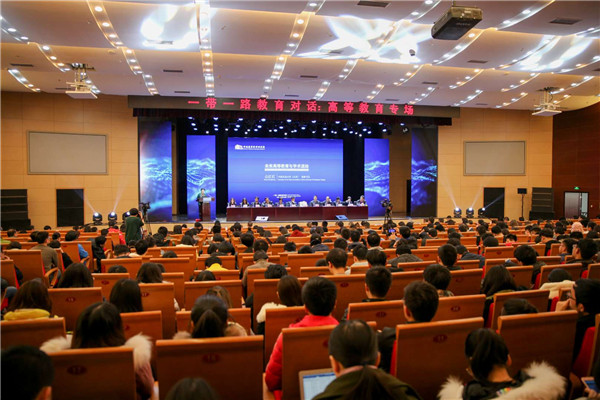
Belt and Road education dialogue opens at CUPB, Beijing, on Nov 28.
A Belt and Road education dialogue entitled "research, policy-making and innovation -- future higher education and academic mobility" opened at China University of Petroleum - Beijing(CUPB) on Nov 28.
Hosted by China's National Institute of Education Sciences (NIES) and organized by CUPB, the dialogue drew approximately 80 scholars and experts from China and countries along the Belt and Road involving Pakistan, Myanmar, Cambodia,Mongolia,India, Israel and others.
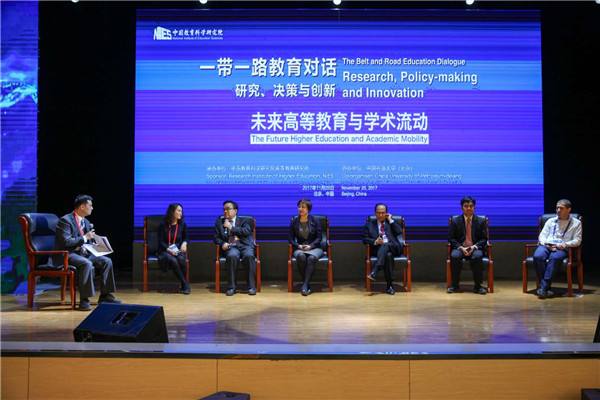
Influential figures, including officials, scholars and experts from China and abroad, take part in the dialogue.
The dialogue is dedicated towards reflecting the current cooperation situation while fostering deeper exchanges among education institutions for the Belt and Road Initiative.
With the theme of "background and trend of academic mobility", 14 experts including Zhang Laibin, president of CUPB; Zhang Nanxing, director of China's NIES higher education sector; Nith Bunlay, vice director of Higher Education Department of the Ministry of Education, Youth and Sport of Cambodian, Wang Haiyan, director of the Education Department of China's Gansu province, along with people from Pakistan higher education commission, Education Ministry of Myanmar, Israel's Moffett Research Institute, Education Development Research Institute of Mongolia, the University of Hong Kong, the Education Department of China's Hainan province, Dongbei University of Finance and Economics, and Foshan University were divided into two groups for their respective topics -- "theory and policy for education cooperation" and "practice and innovation for education cooperation", with which they delivered reports and conducted discussions.
They took turns to speak on their institutes' achievements in academic mobility, higher education policies and globalization, teacher development and curriculum reform, and shared among themselves their opinions on opportunities the Belt and Road Initiative offers for education cooperation.
In addition to arranging reports and discussions, the organizers looked for more innovative ways to promote the forum's theme.
These included a visit to CUPB's national key labs and performances from the university's students who originate from countries along the Belt and Road.
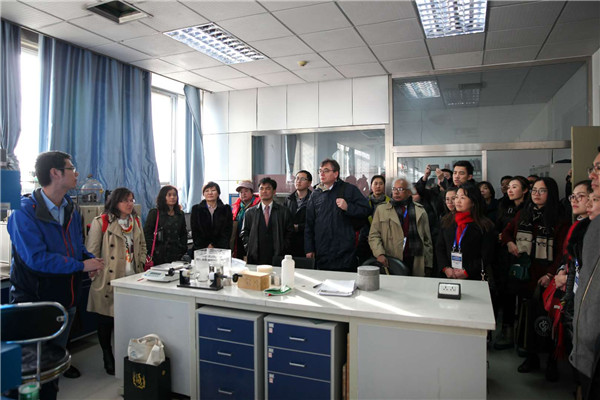
Participants visit key labs of CUPB, Beijing, on Nov 28.
With the backing of the Ministry of Education, the dialogue is specifically set up for promoting education cooperation for the Belt and Road Initiative. It involves a main forum and six panel sessions surrounding different sub-themes such as "attainment and curriculum innovation in the 21 century", "student mobility and cross-national education", "future higher education and academic mobility", "the fourth industrial revolution and future schools", "entrepreneurship education and youth employment", "early childhood development and education". The one held in CUPB this time is one of the six.
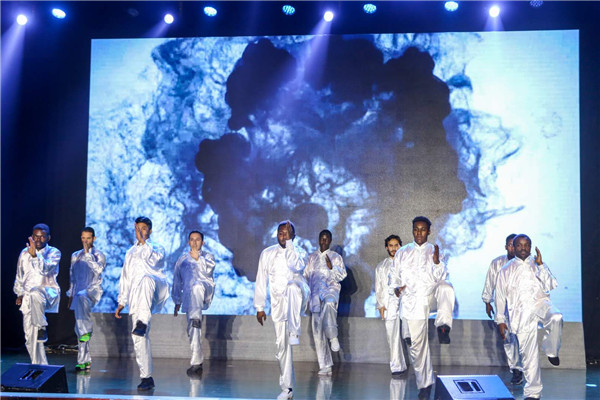
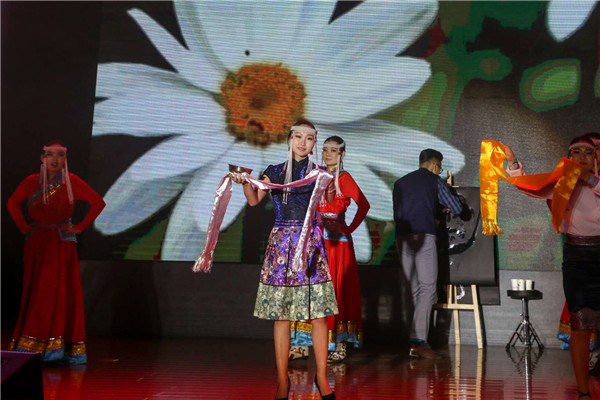
Overseas students perform on stage at the dialogue.
CUPB is one of the earliest batch of universities which docked its development plan with the national Belt and Road Initiative and made many achievements in education cooperation with enterprises and overseas institutions, especially in the Middle East, as Zhang Laibin, president of the university explains, "our efforts are primarily put into providing professional training for countries along the belt and road, recruiting overseas students for studies, and cultivating Chinese students who have contributed to the initiative."
"We hope that through the dialogue, we can understand each other at a deeper level and expand our education cooperation in the future", Zhang added.
Shan Honghong, secretary of the Party committee of CUPB, Song Yi, deputy inspector from the Higher Education Department of the Ministry of Education of China, Tian Huisheng, head of NIES, and Rustamova Chynar Tajiyevna, Turkmenistan ambassador to China, also addressed the event.